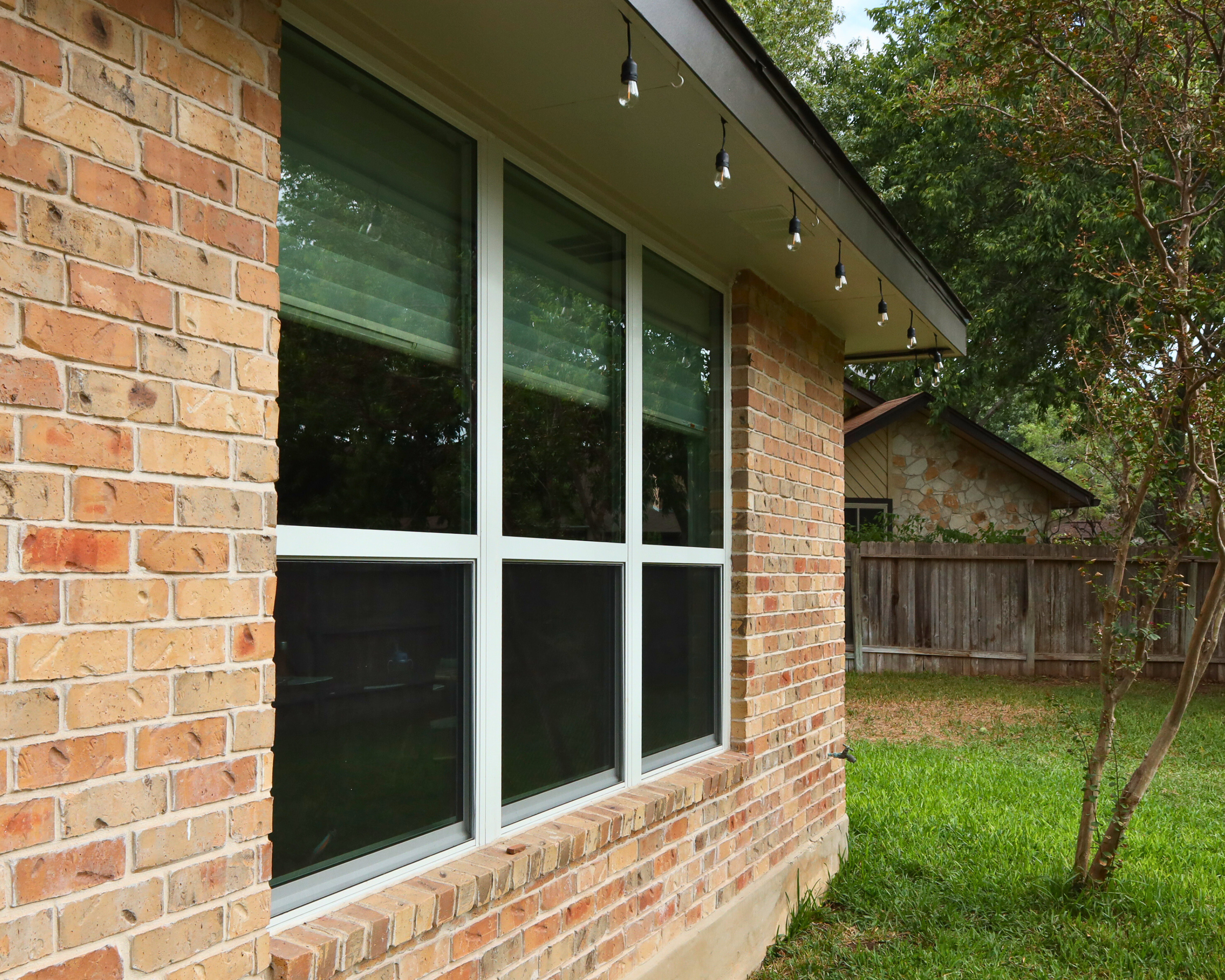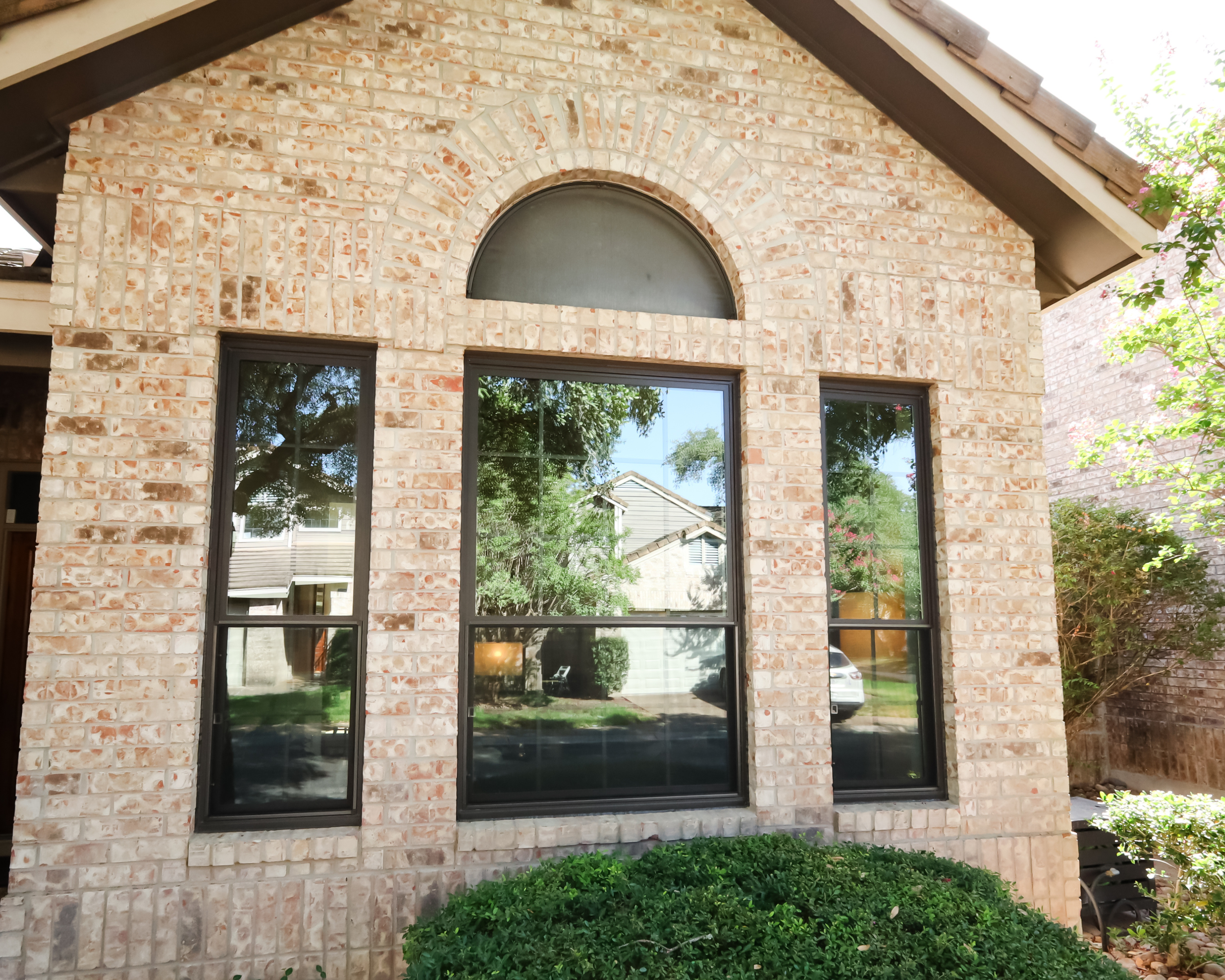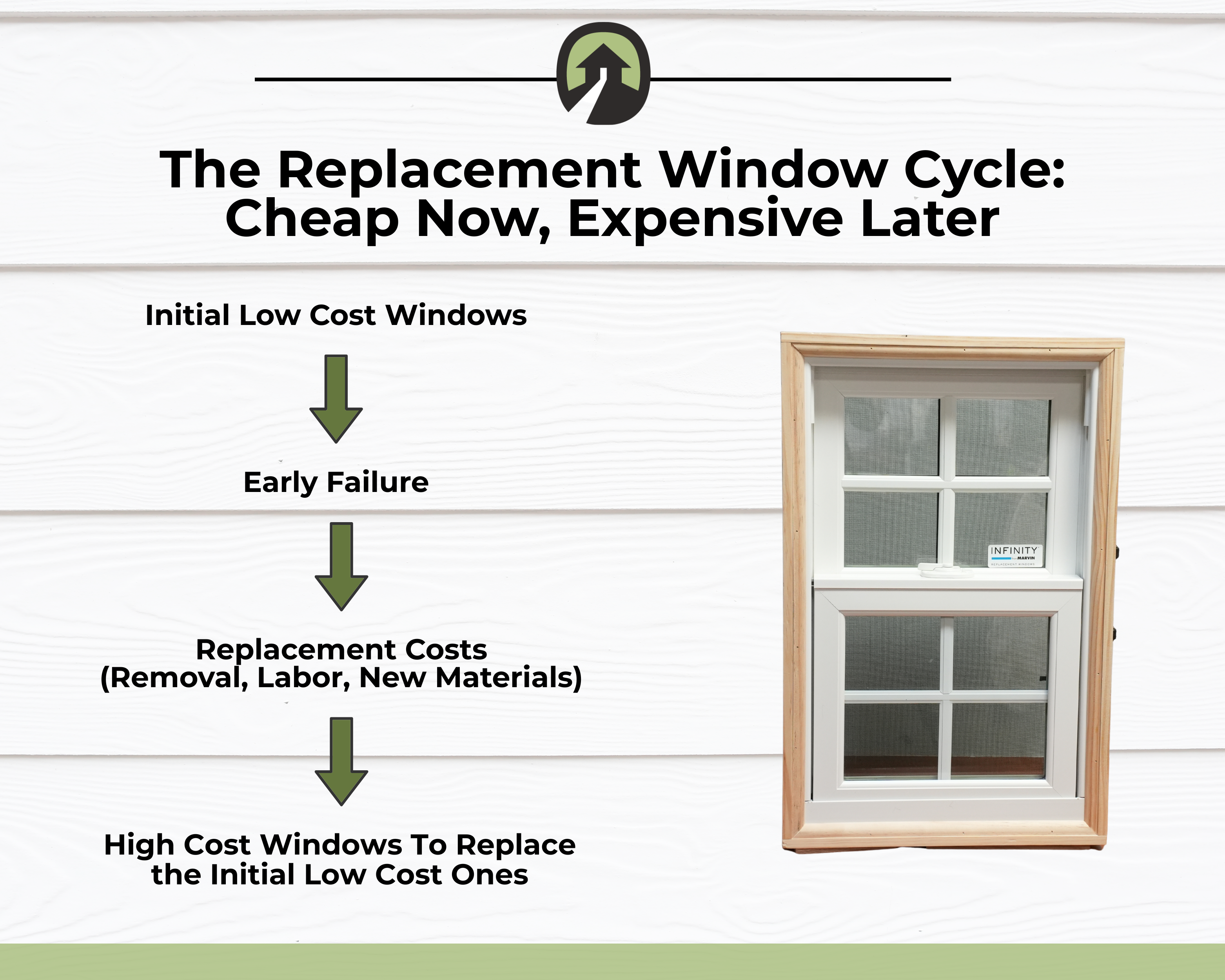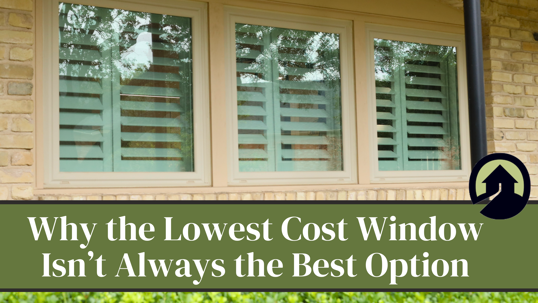When you’re shopping for new windows, it makes sense to want the lowest price. New windows are a significant investment, and at first glance, many options look alike.
So why not save a little money?
But here's the truth: the lowest-priced windows often cost more in the long run. Let's break down why this is and, just as equally important, when lower cost windows could be the right choice.

What Makes a Window "Cheap"?
"Cheap" doesn't necessarily mean bad, but it typically means lower-quality materials, simpler manufacturing processes, and limited features. To offer lower prices, manufacturers usually compromise on:
- Frame Materials: Basic vinyl or lower-quality composites.Glass Packages: Minimal insulation, cheaper glass panes, and basic spacers.
- Hardware: Plastic instead of metal, lower durability.
- Installation Practices: Often subcontracted to speed through jobs quickly, sometimes skipping vital steps.
These shortcuts can result in immediate savings, but they have trade-offs down the road.
Pros and Cons of Lower Cost Windows
Pros:
- Immediate cost savings upfront.
- Suitable for short-term situations (flipping houses, temporary homes).
Cons:
- Shorter lifespan (often 5-7 years or less in extreme climates, like the Texas sun ☀️).
- Increased energy costs due to poor insulation and sealing.
- Greater likelihood of damage (warping, fogging, leaks).
- Limited or ineffective warranty coverage.
- Decreased home resale value.

When Do Budget Windows Actually Make Sense?
There are scenarios where choosing budget-friendly windows is a perfectly logical decision. Consider cheaper windows if:
- You’re flipping a home and want basic functionality at minimal upfront investment.
- You’re planning to sell soon (within 1-2 years), and long-term durability isn’t important.
- Immediate budget constraints mean you need the lowest cost possible for basic performance.
Why Investing in Higher-Quality Windows Usually Pays Off
If you're in your long-term or forever home and care about the comfort and value of your home, higher-quality windows often justify their cost in multiple ways:
- Longer Lifespan: Fiberglass or premium vinyl windows with high-quality materials (like Cardinal Glass) can last 30 years or more, minimizing the need for future replacements.
- Energy Efficiency: Better insulation and advanced glass technology mean lower energy bills and more consistent comfort inside your home.
- Warranty Protection: Lifetime warranties with reputable manufacturers (such as Marvin or Infinity) mean your investment stays protected.
- Enhanced Home Value: High-quality windows improve your home’s aesthetics, market value, and resale potential.
- Everyday Comfort: Better noise reduction, UV protection for furniture, and easier operation for many years.
✅ When Going Cheap Makes Sense
Flipping a house or selling quickly
Planning to move within 1–2 years
Temporary fixes for short-term function
Prioritizing immediate savings over long-term benefits
🌟 When Investing Is the Smarter Choice
Staying in your home 3+ years
Looking to significantly lower energy bills
Increasing your home's resale value
Wanting true lifetime warranty coverage and support
Enhancing comfort, aesthetics, and long-term performance
Understanding Window Warranties: What You Need to Know
A common hidden cost of cheaper windows is their warranty coverage:
- Budget window warranties typically cover only the materials (glass and frames), often excluding labor or installation-related issues. Sometimes, warranties may become void if the installation isn't done by a certified or licensed professional.
- Premium window warranties offer comprehensive coverage, often for the life of your home ownership, including transferability, which can be a significant selling point when reselling your home.
- Southwest Exteriors Warranty (the “We Actually Mean It” Warranty): At Southwest Exteriors, we don’t just hand you a warranty sheet and walk away, we back our windows and installation with a white glove approach. This means if anything comes up, we've got you covered. Parts Labor. You Name it. For as long as you own your home. It’s our way of saying, “We installed it, we stand by it, and hey, we really, really don’t want you worrying about windows ever again.
Choosing the Right Window for Your Situation
Your personal situation and goals will guide your decision. Here are some questions to help determine what's right for you:
- How long do you plan to stay in your home?
- Is long-term energy savings important to you?
- Do you care significantly about aesthetics and curb appeal?
- Are you comfortable potentially replacing windows again within a few years?
If longevity, comfort, and home value matter more to you than immediate cost savings, higher-quality windows are likely the right choice.

Frequently Asked Questions (FAQs)
Q: What are the downsides of cheap windows?
A: They typically have shorter lifespans, offer poor energy efficiency, weaker warranties, and can negatively impact your home's value.
Q: How can I tell if premium windows are worth the cost?
A: Consider your long-term goals. High-quality windows save on energy bills, increase home value, and reduce future repair costs.
Q: How long do cheap windows usually last?
A: Cheaper windows typically last 5-7 years in harsh climates before noticeable deterioration.
Q: Can cheaper windows reduce my home's resale value?
A: Yes—low-quality windows can negatively impact curb appeal and perceived home value, making your home less appealing to future buyers.
Bottom Line
Lower-priced windows have their place, but if you’re staying in your home long-term and care about durability, efficiency, and long-term comfort, investing in better windows often pays off.
At Southwest Exteriors, our priority is to educate and empower you to make the best decision for your unique situation. We're committed to transparency and helping you find windows that genuinely match your goals and needs, not just your budget.
Have questions or want guidance without the pressure? Schedule a free, no-obligation consultation and let us help you understand all your options.

